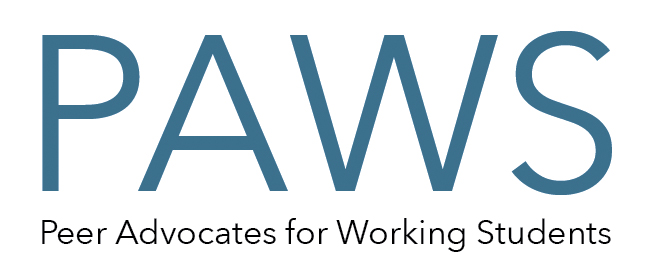
On Wednesday, Oct. 17, Peer Advocates for Working Students (PAWS) hosted a “Know Your Rights” seminar as part of the group’s efforts to educate University students about their rights as workers as well as their employers’ responsibilities. The seminar was led by Tay-Shaun Lawrence ’19 and Tammy Shine ’21 with the help of Emma Rose Borzekowski ’19.
Shine began the seminar by explaining that PAWS is an organization formed out of the University’s United Student/Labor Action Coalition (USLAC).
“USLAC aims to organize in solidarity with all workers on campus and globally to fight for fair treatment and pay,” the group says on its Facebook page.
“Our goal is mainly the support and promotion of student worker rights on campus, work study or otherwise,” Shine said.
Lawrence then went on to review the current state of workers’ rights and responsibilities at the University. He referenced the “Wesleyan Student Employee Rights and Responsibilities” page on the University’s website but suggested that the information it provided was insufficient.
He also commented that the University’s website listed outdated jobs. Lawrence explained that one way PAWS is trying to address the lack of information on workers’ rights and responsibilities is by working to introduce a University student workers’ rights document.
“As PAWS we’re working on building a workers’ rights document that we want Wesleyan to post [on] and hold as a standard because the rights and responsibilities page…is more responsibilities than rights, and more on the employer’s side,” Shine said.
Lawrence and Shine also described the Federal Work-Study program and the federal regulations that affect student workers, such as the 1938 Fair Labor Standards Act, which states that employers cannot accept voluntary services from any paid employee. Shine explained that the Federal Work-Study program designed to benefit employers, as they can pay student workers less. This is because the federal government covers between 10 and 90 percent of the student’s wages and there is therefore a greater incentive for employers to hire Work-Study students.
They noted many issues that student employees can face in the workplace. These include the need to be provided with a clear job description as students often do not know what is expected of them, which means that they may end up doing work that does not fall under their job description.
“For every job that you have, you’re supposed to have a clear job description which includes things like the name, or what the roles are, what you’re responsible for, and how much you’re going to get payed,” said Shine.
Lawrence and Shine also addressed the issue of wages being arbitrarily decided by employers. They argued that wages ought to be related to an employee’s skill level and seniority. However, Lawrence suggested that this is not always the case at the University.
“There are things that we don’t want to talk about right now just because we’re organizing…and before their campaigns are public we don’t want to say which workplaces workers are organizing in,” Borzekowski said when asked about what steps PAWS was taking to address some of these workplace issues.
Aside from this seminar, PAWS is also taking other steps to make student workers more aware of their rights.
“[We] are in the process of reaching out to workers and supervisors and visiting their work-spaces on campus with a summary of workers’ rights that are currently enforceable,” Lawrence and Borzekowski wrote in an email to The Argus. “Additionally we also will be organizing mini seminars that are workplace specific and we will be running quick know your rights trainings for clubs.”
Ultimately, while PAWS highlighted many of their goals and issues they hope to address during the seminar, they emphasized that they are only a student organization and may not be able to have the same impact on student workers’ rights as the University’s Human Resources department.
Claire Isenegger can be reached at cisenegger@wesleyan.edu.


Leave a Reply